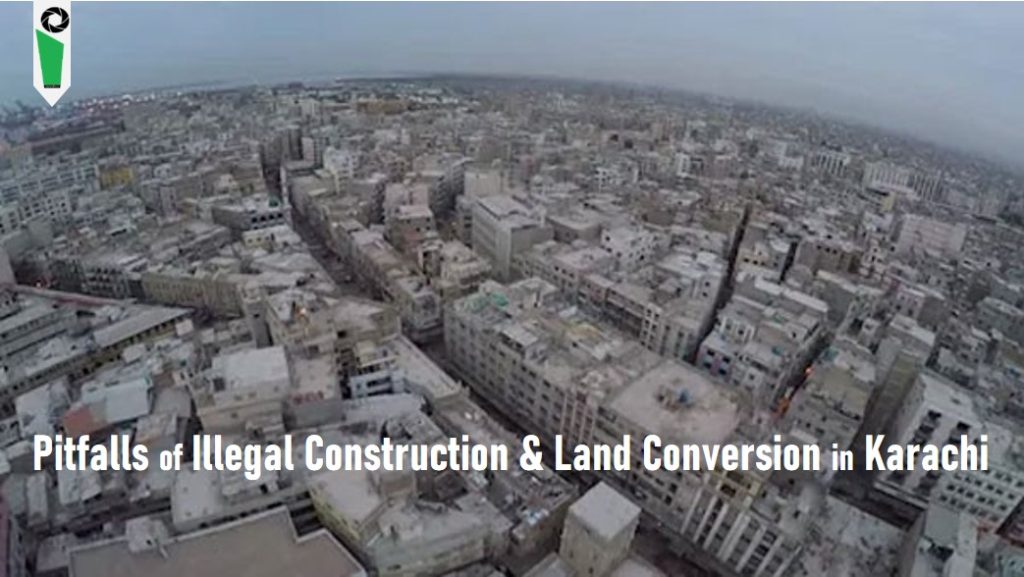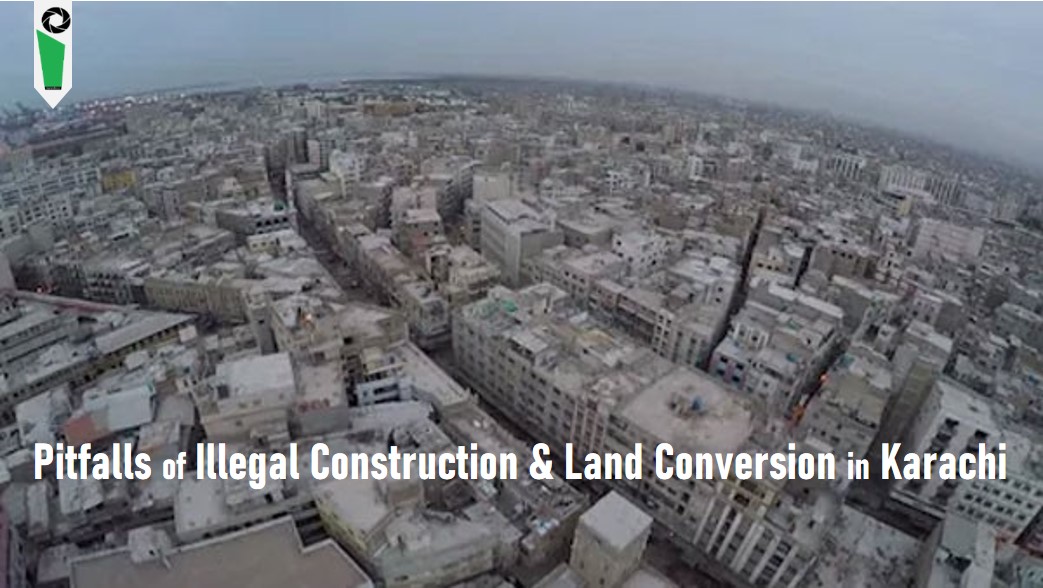
It was in December 2023, when the Sindh High Court took exception to the mushroom growth of illegal and unauthorized construction in the Karachi and observed that such activities had “undoubtedly destroyed the infrastructure of the metropolis” and ordered action against officials and builders concerned. Despite, a number of fire incidents have been reported from different parts of the city within year, which resulted in loss of life and property and the primary cause of such losses was poor measures taken by the occupants or “owners of such buildings”.
Illegal Construction & Insane Commercialization
Infocus in earlier blogs, mentioned “Karachi, a victim of commercialization” and wrote since the last two decades, conversion of residential properties into commercial is a persistent phenomenon in Karachi. In the last two decades, there seems a mushroom growth in Karachi of marriage banquets, malls and shopping plazas, fuel stations and multi-storied buildings on amenity and residential plots, allowed to be converted for commercial purposes. The trend of conversions still proceeds, both with and without official consent, largely in a haphazard manner without envisioning their impacts on environment and public health.
Misuse of Sindh Building Control Ordinance
The Sindh Building Control Ordinance (SBCO) was promulgated in 1979 and the main purposes behind the promulgation of SBCO were town planning, construction of buildings, control of buildings, public and demolition of dangerous and substandard structures as well as disposal of buildings. The SBCO did not intend or authorize the change of land use and conversion of residential land as per the original master plan of 1952.
However, the impugned Karachi Buildings and Town Planning Regulations, 2002 (KBTPR) unlawfully been incorporated for change of land use and commercialisation mechanism without proper planning and upgradation of civic infrastructure and amenities. The KBTPR, to the extent of change of land use of residential plots and commercialisation of roads in order to change land status, was against the very scheme, intent and architecture of SBCO and severely affecting the fundamental rights of the citizens. But the framers of KBTPR apparently acted beyond their jurisdiction and themselves included the change of land use and commercialisation chapter which was inconsistent with the law.
Ruination of City’ Infrastructure
As a result, the former City District Government in 2004 — while used to enjoying the functions of land-use and Master Plan — declared 17 important roads of the metropolitan like Shahrah e Faisal, Shahrah e Pakistan, Tariq Road, Nazimababd Road, University Road, Rashid Minhas Road and others as commercial districts in their commercialization policy. That led many plot owners the opportunity to convert their properties as commercial entities alongside these roads. Besides, several violators paid a fine via amnesty schemes and commercialized their property on purely residential streets. Khalid Bin Walid road is one of such many examples.
Later the Sindh Government, having the control of Sindh Building Control Authority (SBCA), brought Sindh Special Development Board Bill 2014 to rehabilitate all Katchi Abadis in Karachi. The Bill mainly permitted and facilitated private builders to utilize 25% area of Katachi Abadis in commercial use. The devastating results of this policy has resulted into regularization of many illegal structures in Punjab Colony, Manzoor Colony, Layari and many other localities.
Supreme Court Judgments
In January 2019, a two-judge Supreme Court bench headed by Justice Gulzar Ahmed imposed a complete ban on conversion of residential and amenity plots into commercial spaces in Karachi and directed the authorities concerned, including cantonment boards, to review all such conversions allowed by them in Karachi. The SC bench also barred the SBCA from approving multistory buildings on residential plots as well as amenity spaces.
The Apex Court questioned the Sindh government’s policy with regard to conversion of residential land for commercial purposes in different parts of the city and asked how 178 residential localities of the city could be allowed to be converted for commercial purposes through town planning regulations.
By
Editorial, Infocus



